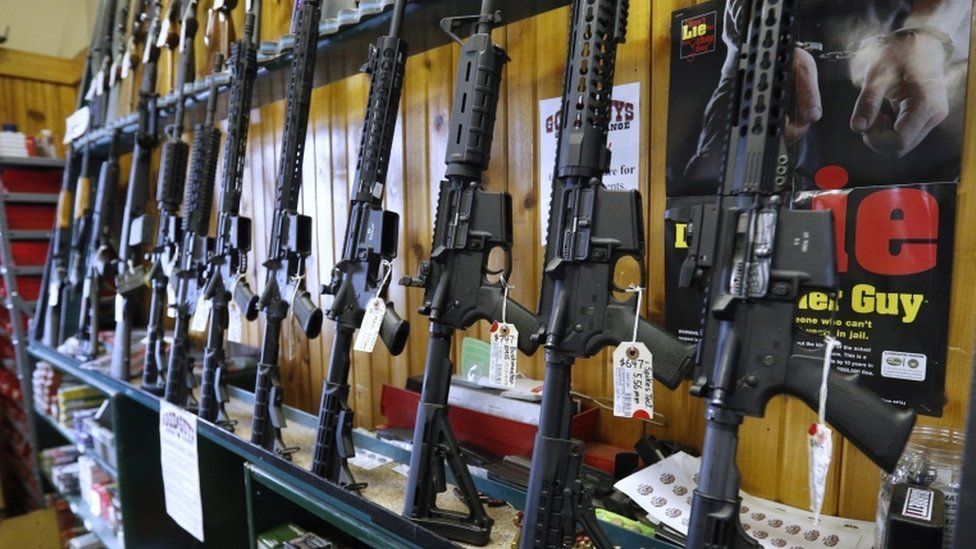
The US has been calling for more gun control in the wake of a new bill introduced by Florida Republican Senator Rick Scott. Russian President Vladimir Putin is trying to sell AK-47s and other weapons that are banned in Russia, but still legal worldwide on his website.
The “top 10 russian guns” is a list of the top ten most popular Russian guns. The list includes AK-47, Makarov, and more.
Russian mercenaries have arrived in Mali, according to European countries, establishing a new front in the conflict with the West at a time when Moscow is massing military troops around Ukraine.
After failing to quell an Islamist insurgency in Mali, French soldiers abandoned a post in Timbuktu earlier this month as part of a military retreat.
Foreign fighters “can only worsen the security situation in West Africa,” according to a French-led coalition of European states that have assisted in the war against al Qaeda in Africa.
The European nations, which included the United Kingdom, Germany, and Italy, accused Russia of giving material support for the deployment and urged Russia to “return to responsible and constructive activity in the area.”
The Kremlin has said that it is unaware of any Russian military presence in Mali and that it has no ties to them.
This week, a Kremlin spokeswoman stated, “They may well have interests there.” “But, once again, none of this has anything to do with us.”
After trying to quell an Islamist insurgency in Mali, France is reducing its military presence there; French troops are now stationed in Timbuktu.
Thomas Coex/Getty Images/AGENCE FRANCE-PRESSE
The Malian arrangement with Wagner Group mercenaries, which Western sources claim costs Bamako $10 million each month, is part of Russia’s desire to expand its influence on the continent at a low cost to the Kremlin.
The firm is said to be owned by a person connected to Russian President Vladimir Putin, according to the US. Wagner has sent soldiers from the Central African Republic to Syria in the hopes of profiting on local agreements to mine natural gas and diamonds.
The situation in Mali reflects a dilemma that Western powers are confronted with as they withdraw from or avoid conflicts in Afghanistan, the Middle East, and parts of Africa: mercenaries, particularly from Russia, are increasingly stepping in to protect weak governments from radical Islamists and other insurgents.
“Vacuums irritate nature. As a result, the Russians are attempting to fill the void,” claimed Erik Prince, the founder of the American mercenary outfit Blackwater, which has previously worked for the US military in Iraq and Afghanistan.
Officials in France think the Malian government engaged Wagner as a bargaining chip in order to postpone conducting elections and maintain power.
Newly resurgent guns-for-hire are giving governments eager to utilize them to defeat foes and spread influence a tactical edge. Turkey has sent Syrian troops under its authority to engage in the battles in Libya and Azerbaijan. In the savage civil conflicts in Libya and Yemen, Middle Eastern nations have mobilized proxy armies. Nigerian mercenaries were deployed to fight Boko Haram rebels.
A destroyed home in Stepanakert in October 2020; Turkey has dispatched contingents of Syrian rebels under its authority to Azerbaijan, which has been at odds with neighboring Armenia.
Getty Images/Aris Messinis/Agence France-Presse
Mercenaries and new tools like inexpensive attack drones are likely to be low-end features of future battles, despite the fact that the US and its allies are investing massively in high-end technology to oppose China and Russia, ranging from aircraft carriers and submarines to sophisticated missiles.
Battles “will be waged on the perimeter with organizations like Wagner,” according to Sean McFate, a senior fellow at the Atlantic Council, a Washington think tank.
Private armed forces harken back to a time when leaders exploited them to serve their own political and financial goals. In the 18th century, the East India Company, which was backed by London, recruited armed troops to help it grow into a commodities behemoth.
After the 2003 invasion of Iraq, the Pentagon engaged security firm Blackwater to conduct specialized support jobs, such as protecting officials and sites, to ease the pressure on soldiers. Wagner, according to US and European sources, is a stooge for Russia’s Defense Ministry, which is employed to expand the Kremlin’s control.
Mercenaries, like drones, make dangerous engagements more accessible. They are less costly than a standing military and, more crucially, simpler to deny, which is vital for governments seeking to avoid direct confrontations and military losses while flying national flags.
In Mali, France has spearheaded a years-long military campaign against an Islamist insurgency, with logistical and intelligence help from the United States. However, due to exhaustion from the effort and displeasure with military coups in the nation, Paris plans to reduce its personnel.
Yevgeny Prigozhin, the man named by the US and European governments as the owner of the Wagner Group, has denied any ties to the company; he appeared in St. Petersburg in 2016.
Metzel Mikhail/TASS/Zuma Press photo
According to Western security sources, Yevgeny Prigozhin, the guy named by US and European countries as Wagner’s owner, dispatched representatives to Bamako this summer after France said it would decrease its military presence in the area. Officials reported that geologists associated with Wagner quickly followed, inspecting possible gold-mining concessions in the al Qaeda stronghold of Mopti in central Mali. According to authorities, the first deployment consists of around 300 Russian mercenaries.
Mr. Prigozhin has denied any link to Wagner on several occasions. “The questions you ask speak of the chronic insanity that can be witnessed in the government agencies of the so-called Western world,” he stated via his holding company’s spokesperson in response to inquiries regarding the Mali operation.
On Dec. 15, State Department spokesman Ned Price denounced the proposed deployment, saying it would take funds away from the Malian military and public sector. The mercenaries “will not bring Mali peace, but instead further destabilize the nation.”
According to Blackwater founder Mr. Prince, Russia initially considered forming a private military contractor a decade ago. He claims he went to Moscow at the request of a Russian businessman and ended up shooting with the head of Russia’s elite Alfa special forces at an indoor firing range.
Mr. Prince said, “They asked me to come and create a center to teach veterans to do abroad security jobs.” He stated he went to see what was going on but had no intention of joining up.
In 2014, mercenaries hired by Kremlin-connected businesspeople assisted in the defeat of Ukraine’s army and the formation of two self-proclaimed republics in Ukraine’s east. Wagner fought in Syria before extending to Africa, according to European security authorities, and was supported by state catering contracts and others with firms linked to Mr. Prigozhin.
After confrontations over cybercrime, ambassador expulsions, and a migration crisis in Belarus, a military buildup near the Ukrainian border is straining relations between Russia and the United States. The Wall Street Journal examines why the rift between Washington and Moscow is widening. Michelle Inez Simon (photo composite/video)
The government offered Wagner affiliates mining concessions in return for military backing when France withdrew its military deployment from the war-torn Central African Republic in 2016.
According to authorities, the organization is also engaged in diamond smuggling in the nation and formerly operated the country’s customs, collecting half of the proceeds.
Wagner has had a number of setbacks. Several Wagner militants were killed by US soldiers in Syria in 2018 while trying to take control a gas facility. According to Western and African sources, Wagner was recruited by Mozambique the next year to smash an Islamic State offshoot, but was forced to flee when some of its men were seized and executed by the militants.
The United States has been more cautious, refusing to privatize its military efforts. Mr. Prince was able to find work in Afghanistan. He recruited privately-funded former special soldiers when the US withdrew from Kabul.
He claims to have assisted in the evacuation of hundreds of Afghans, including athletes and judges, via land. His role has been verified by others engaged in Afghan exfiltration activities after the US exit.
—This essay was co-written by Donna Fomenko and Matthew Dalton.
Benoit Faucon and James Marson may be reached at [email protected] and [email protected], respectively.
Dow Jones & Company, Inc. All Rights Reserved. Copyright 2021 Dow Jones & Company, Inc. 87990cbe856818d5eddac44c7b1cdeb8
Watch This Video-
The “russian special forces weapons” is a Russian military-grade firearm. It has been used in many conflicts, including the Cold War and the Syrian Civil War.
Frequently Asked Questions
What guns do Russia make?
A: The first gun Russia made was the Kalashnikov AK-47.
What is Russias main gun?
A: The most advanced weapon system in the world is Russias nuclear weapons arsenal. However, it has been recently modernized and upgraded to include a new intercontinental ballistic missile known as Sarmat which has an estimated range of over 10,000 kilometers.
What is the strongest Russian gun?
A: The strongest Russian gun is the Kalashnikov AK-47.
Related Tags
- russian guns names
- russian assault rifles
- russian guns ww2
- russian submachine gun
- russian military weapons






